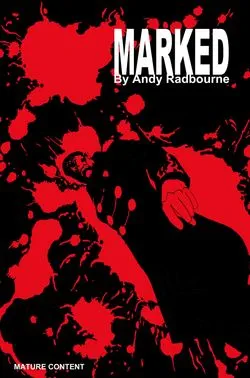⠪
Doctor Who 2024 Episode 1 & 2 Review - GLEE in SPACE
Published: 12th May 2024, by Andrew Radbourne.
My musings about the return of Doctor Who, series 40, 14 or 1 depending on your point of view, staring Ncuti Gatwa in Space ...
Greetings everyone,
Have you ever watched a show that left you in utter disbelief and confusion? If you thought Jodie Whittaker's tenure on Doctor Who was a rollercoaster ride, brace yourself for a space odyssey that veers wildly away from the show's past. It doesn't just take a detour, it blasts off into a galaxy where camp absurdity reigns supreme, leaving behind the essence that made Doctor Who special.
Diving into the first episode, "Space Babies," it's clear from the get-go that the Doctor and Ruby's childish personas are an apt match for the episode's title. The narrative is laden with heavy exposition, presumably to catch the attention of new viewers. However, the over-explanation is a recurring feature that doesn't quite hit the mark, nor does it match the subtlety of Chris Chibnall's previous scripts.
Moreover, the performances from the two leads - Millie, as Ruby, and Chuty, as the Doctor - leave much to be desired. Millie's Ruby comes off as a bargain basement version of Clara, complete with a mystery girl narrative that echoes familiar beats. Meanwhile, Chuty's portrayal of the Doctor is more over-the-top than a middle-aged man ranting about Brexit - a true ham performance.
Their dialogue is reminiscent of children's TV presenters, which makes the whole experience feel more performative than immersive. It's akin to being at a forced fun event where the organizers are running around with forced smiles and hollow enthusiasm, trying to convince us that we're having fun when we're really just counting the seconds until it's over.
The Doctor's recounting of his past, specifically the genocide of his people, is a recurring theme that's treated with a binary emotional switch - one minute he's jovially overacting, the next he's a picture of sorrow. Chuty's performance lacks nuance, and his constant references to being adopted serve to drill the "Timeless child" concept into the show's history.
Ironically, showrunner Russell T Davies seems to have abandoned much of New Who mythology, including the Doctor's name and its historical significance. This is evident when, at the end of the first episode, the Doctor walks into Ruby's home and is on the verge of revealing his name.
The show attempts to communicate meaningful messages, but they're clumsily inserted and often don't resonate. One such message is about being happy with who you are, regardless of how you might change. Though it's an important lesson, it's delivered in such a blunt manner that it loses its impact.
The narrative does present some intriguing concepts, but they're overshadowed by a plethora of irritating characters, nonsensical plot points, and subpar acting. For instance, the casting of drag queen Jinx Monsoon as an antagonist raises concerns about the show's repeated push of gender ideology. However, despite these issues, Jinx proves to be a standout performer, delivering a delightfully eerie menace reminiscent of the Child Catcher from Chitty Chitty Bang Bang.
Unfortunately, the show still suffers from overacting by Millie and Chuty, which is jarring to say the least. There's also a forced sense of familiarity between the two characters that feels unearned at this early stage of the series.
There are a few redeeming moments, such as a cool scene involving the Doctor's sonic computer mouse; however, these are few and far between. Both episodes attempt to tug at our heartstrings, but the emotional manipulation feels contrived and devoid of genuine feeling.
The show seems to have transitioned from a tale of a lonely god traversing the cosmos to a high-camp spectacle reminiscent of Glee. What was once Doctor Who now feels like a cheap imitation, as if Davies occasionally remembers what he's supposed to be writing and hastily adds in elements of the original show.
On a technical note, I found Murray Gold's score lacking in emotional resonance, and the TARDIS set is disappointingly bland - a vast, cold, impersonal space that belies the ship's historical charm.
In conclusion, the show has sadly drifted so far away from its roots that I question whether I can continue watching. It's a painful realization, but this iteration of Doctor Who doesn't feel like the same show I once loved. I find myself asking, "Who is this show for now?"
So, what are your thoughts? Am I just an old grump who needs to get with the times, or do you agree that the show is undergoing a regrettable transformation?
Have you ever watched a show that left you in utter disbelief and confusion? If you thought Jodie Whittaker's tenure on Doctor Who was a rollercoaster ride, brace yourself for a space odyssey that veers wildly away from the show's past. It doesn't just take a detour, it blasts off into a galaxy where camp absurdity reigns supreme, leaving behind the essence that made Doctor Who special.
Diving into the first episode, "Space Babies," it's clear from the get-go that the Doctor and Ruby's childish personas are an apt match for the episode's title. The narrative is laden with heavy exposition, presumably to catch the attention of new viewers. However, the over-explanation is a recurring feature that doesn't quite hit the mark, nor does it match the subtlety of Chris Chibnall's previous scripts.
Moreover, the performances from the two leads - Millie, as Ruby, and Chuty, as the Doctor - leave much to be desired. Millie's Ruby comes off as a bargain basement version of Clara, complete with a mystery girl narrative that echoes familiar beats. Meanwhile, Chuty's portrayal of the Doctor is more over-the-top than a middle-aged man ranting about Brexit - a true ham performance.
Their dialogue is reminiscent of children's TV presenters, which makes the whole experience feel more performative than immersive. It's akin to being at a forced fun event where the organizers are running around with forced smiles and hollow enthusiasm, trying to convince us that we're having fun when we're really just counting the seconds until it's over.
The Doctor's recounting of his past, specifically the genocide of his people, is a recurring theme that's treated with a binary emotional switch - one minute he's jovially overacting, the next he's a picture of sorrow. Chuty's performance lacks nuance, and his constant references to being adopted serve to drill the "Timeless child" concept into the show's history.
Ironically, showrunner Russell T Davies seems to have abandoned much of New Who mythology, including the Doctor's name and its historical significance. This is evident when, at the end of the first episode, the Doctor walks into Ruby's home and is on the verge of revealing his name.
The show attempts to communicate meaningful messages, but they're clumsily inserted and often don't resonate. One such message is about being happy with who you are, regardless of how you might change. Though it's an important lesson, it's delivered in such a blunt manner that it loses its impact.
The narrative does present some intriguing concepts, but they're overshadowed by a plethora of irritating characters, nonsensical plot points, and subpar acting. For instance, the casting of drag queen Jinx Monsoon as an antagonist raises concerns about the show's repeated push of gender ideology. However, despite these issues, Jinx proves to be a standout performer, delivering a delightfully eerie menace reminiscent of the Child Catcher from Chitty Chitty Bang Bang.
Unfortunately, the show still suffers from overacting by Millie and Chuty, which is jarring to say the least. There's also a forced sense of familiarity between the two characters that feels unearned at this early stage of the series.
There are a few redeeming moments, such as a cool scene involving the Doctor's sonic computer mouse; however, these are few and far between. Both episodes attempt to tug at our heartstrings, but the emotional manipulation feels contrived and devoid of genuine feeling.
The show seems to have transitioned from a tale of a lonely god traversing the cosmos to a high-camp spectacle reminiscent of Glee. What was once Doctor Who now feels like a cheap imitation, as if Davies occasionally remembers what he's supposed to be writing and hastily adds in elements of the original show.
On a technical note, I found Murray Gold's score lacking in emotional resonance, and the TARDIS set is disappointingly bland - a vast, cold, impersonal space that belies the ship's historical charm.
In conclusion, the show has sadly drifted so far away from its roots that I question whether I can continue watching. It's a painful realization, but this iteration of Doctor Who doesn't feel like the same show I once loved. I find myself asking, "Who is this show for now?"
So, what are your thoughts? Am I just an old grump who needs to get with the times, or do you agree that the show is undergoing a regrettable transformation?
Comments:
No comments yet.

